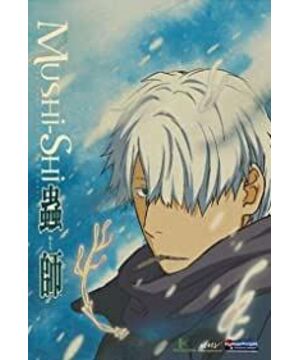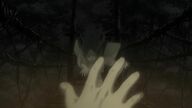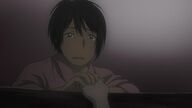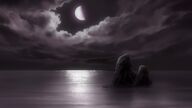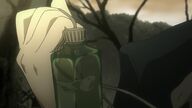Taking the liberty to express my humble opinion, what I understand is the sadness and beauty of things: originating from ambiguity, feeling impermanent, and returning to nature. The ambiguous atmosphere of this work is very heavy, and it is concentrated in an empirical way of life and values, as well as some so-called superstitions produced by the general underdevelopment of science in that era.
In addition, in this work, the homogeneous life characteristics of the community are also clearly expressed, that is, the close symbiosis and interdependence of people in the villages and a certain intolerance.
I secretly think that the material sorrow is mainly based on the social and historical conditions and natural geographical environment of Japan, an aesthetic spirit that is biased towards intuitionism and empiricism. Although on the one hand it is beautiful to its feelers, it seems that we cannot ignore its anti-intellectualism and irrational narrowness, and this narrowness is also integrated into its beauty: the ambiguous way of living The experience of harmony and beauty is deeply influenced by the Buddhist concept of impermanence, as well as the understanding of natural wisdom; however, this spirit of mourning also reveals the lack of personal rationality behind the ambiguity and the homogeneity of community life, which is exposed by the concept of impermanence. The underdevelopment of the natural sciences, overemphasis on nature and the absence of personality freedom and self-discipline.
It's not that I don't appreciate the sadness and beauty of things in one autumn because of this... It's just that this story didn't tell my heart. Personally, I think this work is completely incomparable with The Tale of Genji, The Tale of Heike, or the Works of Empty Grass, Pillow Grass, and The Book of Abbots. If you think that Yiqiu has a lack of aesthetic feeling for this work, have you read the above works one by one? Therefore, I think this kind of mutual accusation is meaningless, so please stop.
The work of Insect Master is indeed very quiet, and the story told is not the pursuit of unconventional, it can be said that it is to "deliver the taste to indifference". Helpless, it was bland rather than bland to me. Well, the supervision and script (I like Hiroshi Nagahama's!) are very good at telling the story, the painting is in line with the idea of the story, and the soundtrack is almost impeccable. Unfortunately, I just feel that the story itself has not yet arrived! ——Maybe, it’s just because I’m too partial to Genji Monogatari and Peace Family Monogatari. Because once I've seen a work like that, it's very difficult for such a work to enter my heart.
What I appreciate more is that people who have discovered the truth of life and still love it are the heroes of a tragedy; what I don't appreciate is that in the face of the never-ending sense of nothingness, human beings simply shrink back or let themselves go. It is a disgraceful exit of the will of life, a disgraceful ending of human dignity-nothing exists (of course, this work is not necessarily like this, rather, Yingu is close to a liberator). In the case of this work, the color of naturalism and animism embodied in it, the reason why I cannot agree with its concept is that it shows a too strong lack of human self-subjectivity: Man is indeed a part of nature, but man is also man himself. Too much. Humans are just human beings after all, but from the moment they become human, there is the possibility of transcending themselves. To put it bluntly, the worship of nature (or the so-called open-mindedness without life and death) in this work is more dedicated to passive nihilists, escapists, and those who are dissatisfied with this world and cannot find a way out an idyllic song. (Is it better to look for the most moving pastoral songs in the LCL sea! Just kidding) Aside from the arguments of existentialism, behaviorism, and expressionism, I think one of the biggest problems with pastoral life is that in In such a world, what is the fundamental difference between people who have lived and who have not lived? Everything will eventually return to nature, so, is man just a shadow walking on the earth? "He was born, grew up, and died as if he had never lived in this world, leaving behind faint traces. Then there is nothing in the place where he exists, and it seems like it is gone in the distant bells that are arranged by fate. life." What a return to nature!
Man is made of soil and will eventually return to dust, but man is not soil. Treating nature kindly and living in harmony with nature, I agree with both hands! ——For this reason, we cannot blindly indulge in sadness, what we need is effort rather than escape! Don't run away from yourself, don't run away from your responsibilities....
Those who are willing are led by fate; those who are unwilling are dragged by fate. Through the conscious knowledge of subjectivity and the spontaneous knowledge of non-subjectivity (please note that subjectivity here is not necessarily based on some kind of rationalism, but more importantly is the awakening of a being), even if they achieve the same result, they The depth of aesthetics is also incomparable. A short rest is necessary, but you can't forget why you set off. Isn't that the purpose of travel?
"Nature created man, and then shattered the mold." In addition to seeking and liberating, don't forget that we can also "create".
The bricks that attract jade, please do not beat the bricks; if you see a hole, please correct it~!
View more about Mushi-Shi reviews


